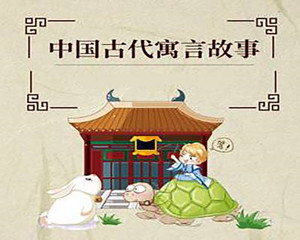古代寓言原是民间口头创作,文学体裁的一种。含有讽喻或明显教训意义的故事。它的结构简短。主人公可以是人,可以是动物,也可以是无生物。多借用比喻手法,使富有教训意义的主题或深刻的道理在简单的故事中体现,而还需要自己去理解,思考,这就是和西方寓言的不同之处。

《古代寓言·发誓》
有官人性贪,而示人以廉。初仕,向神发誓曰:“左手要钱,烂了左手;右手要钱,烂了右手。”
久之,有以百金行贿者,欲受之而疑前誓。左右为解曰:“请以此金纳官人袖中,便烂也只烂了袖子。”
官人然其言,辄纳之。
——《雪涛小书》
Honesty
A corrupt official wanted to show that he was pure and honest. So, before assuming office, he took an oath in public, saying, "If my right hand accepts bribes, let it fester; if my left hand accepts bribes, let it fester, too."
After some time, a person offered him a hundred taels of silver as a bribe. He wanted to accept but feared that the oath might take effect.
To help him out of his quandary, the runner said, "Why not place the money in Your Honour's sleeve so that it, and it only, if rot it must!"
The official thought it was a sound idea and accepted the money.
Notes of Xue Tao
(杨宪益、戴乃迭 译)
更多精品翻译素材,敬请关注可可英语。











